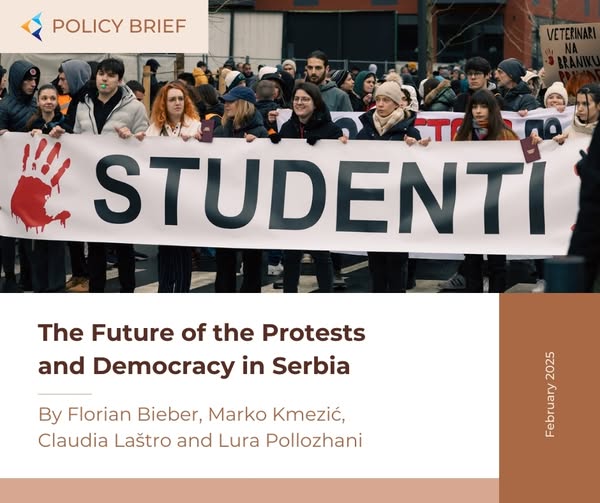
For three months, tens of thousands of citizens, led by students from all over Serbia, have been protesting in demonstrations, blockades, vigils and other actions throughout the country. They constitute the most serious challenge to the thirteen-year rule of Aleksandar Vučić. The outcome of the protests is not just crucial for Serbia, but for the entire region, as Vučić has been a disruptive force with his support for Serb nationalist parties and interference in neighboring states.
These massive protests also hold lessons for challengers to autocratic rule elsewhere. They fundamentally differ from previous demonstrations against the Vučić government over the past decade – in terms of scale, countrywide scope and tactics, as well as the students’ central role in them. Change through Protests? The real question is how these protests can lead to change in Serbia.
They have clearly defined demands: they seek a legal process against those responsible for the collapse of the canopy at the Novi Sad train station, release of all documents pertaining to its construction, investigation into subsequent attacks against the students and finally, increased funding for universities.
While the students did not explicitly demand sackings or new elections, the ruling party and President Vučić have responded with resignations, offers of pardons and other measures outside the institutions’ jurisdiction. Thus, the president and the ruling party offer solutions that reinforce the extra-constitutional power of the president and a political response, rather than an institutional one, as demanded by the students.
The four demands raised by Serbian students can be summarized into one fundamental call: they seek accountability from their government and the reinstatement of the rule of law in the country. Over the past thirteen years of SNS’ (Serbian Progressive Party) rule, widespread corruption has eroded the rule of law, transforming key institutions into mere tools for those in power. Elections have been marred by irregularities, leaving no realistic opportunity for the opposition to gain power through democratic means. State-run media serve as a mouthpiece for the ruling party and the police and intelligence services target civil society organizations unlawfully.
In such a climate, the restoration of a functioning rule of law - one that holds government officials accountable, limits their power and ensures legal checks and balances - is essential not only for democracy, but for any semblance of political normalcy. After three months of protests, president Vučić wants to give an appearance of fulfilling the demands - at least to his voters - without actually doing so. As Serbia is at an impasse, the question arises of the possible and likely scenarios.
Download the brief at the following link.